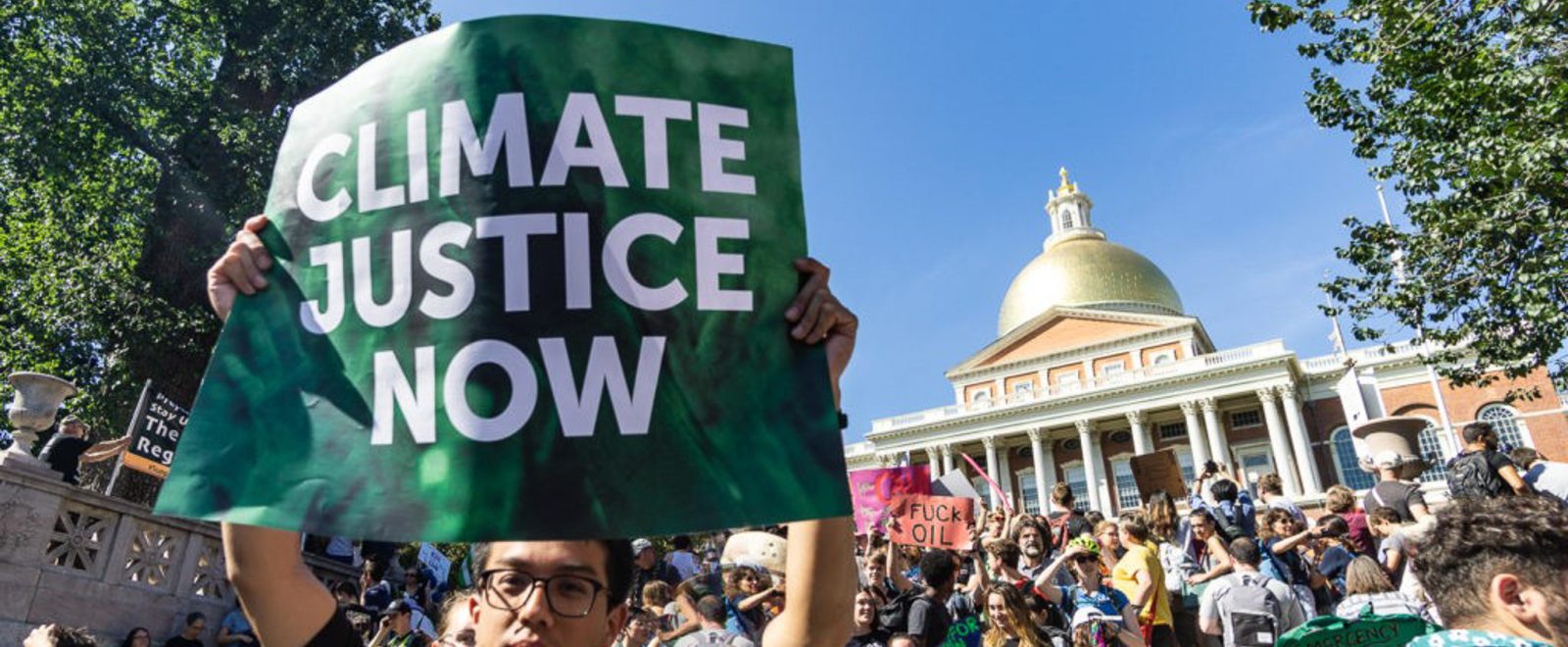Sunday’s March to End Fossil Fuels was the biggest climate march seen in the U.S. since the pandemic – around 75,000 people took to the streets of New York City, capping off a weekend of global actions that saw over half a million more people marching in 60 countries. ActionAid was proud to endorse the New York march and have staff in attendance, calling on the Biden Administration to act. It was an exciting start to Climate Week – the week designated for climate events held around the UN General Assembly (UNGA).
After a summer filled with climate disasters, which show no sign of slowing down, it is apparent that the climate crisis is here. Every community is being impacted, with those who are the most vulnerable (and who contributed the least to the crisis) hurting the most. The world is nowhere close to being on track to meet the goals of the Paris Agreement, which would help limit the level of damage. A change, of course, is desperately needed.
The New York march was organized to build pressure for a shift in U.S. government policy. The U.S. is the world’s largest historical emitter and therefore has a huge responsibility to act on climate change. The demands for the march focused on things over which President Biden has authority, and can thus act on without the need for Congressional approval:
- Stop federal approvals for new fossil fuel projects, and repeal permits for climate bombs like the Willow Project and Mountain Valley Pipeline
- Phase out fossil fuel drilling on public lands and waters (no new drilling on federal lands was a campaign promise)
- Declare a climate emergency, turbo-charging the build-out of a more just, resilient energy system
- Provide a just transition to a renewable energy future that generates millions of jobs which support worker and community rights.
Biden made headlines a few weeks ago for claiming he had “essentially” declared a climate emergency already. That’s wrong, and it speaks to a bigger problem in the administration’s thinking. Generally, they seem frustrated that climate activists aren’t happier with them, because the administration seems to genuinely feel they have done a lot. But this self-assessment is based on evaluating progress as political wins and losses, not what the crisis is actually demanding. The climate doesn’t care if Biden is doing so much more compared to a hypothetical Republican administration, or that he’s managing a split and hostile Congress.
The Biden administration has done more than any previous administration to act on climate change.
That includes major investments into clean infrastructure and renewable energy in the Inflation Reduction Act (IRA), canceling some fossil fuel leases, and protecting portions of critical ecosystems. But it has also continued to approve new fossil fuel infrastructure, notably the Willow Project and the Mountain Valley Pipeline. These latter actions are simply not compatible with a climate-just or climate-safe future. Building out renewable energy is necessary, but not sufficient. We actually have to stop emitting fossil fuels. At a minimum, that means an immediate stop to building new fossil fuel infrastructure, and urgent planning for a full phase-out. That hasn’t happened.
The Biden administration has also failed on climate finance, which is critical to unlocking needed ambition globally. It is not clear if the US will meet its $11.4 billion climate finance pledge anytime soon, (and it is relying largely on loans to attempt to do so). The U.S. is chairing the Green Climate Fund Board right now, but not only has Biden been unable to complete the 2014 pledge made by the Obama Administration, they haven’t said if they plan to make a new pledge during the replenishment conference this October. This is a shameful abdication of responsibility that has profoundly chilled ambition on climate action globally.
Next steps for climate action
The global marches, New York Climate Week, and the UN Secretary General’s Climate Ambition Summit are part of a series of global climate events leading up to COP28, where fossil fuels, Loss and Damage, and the global stocktake (assessing how much progress has been made since the Paris Agreement) will be the focus. If President Biden really wants to be the climate leader he clearly thinks he is, he should take the demands of the march seriously and go to COP28 with a commitment to urgently phase out U.S. fossil fuel extraction and usage, and to support a robust Loss & Damage fund designed with the needs of developing countries and poor communities in mind.



